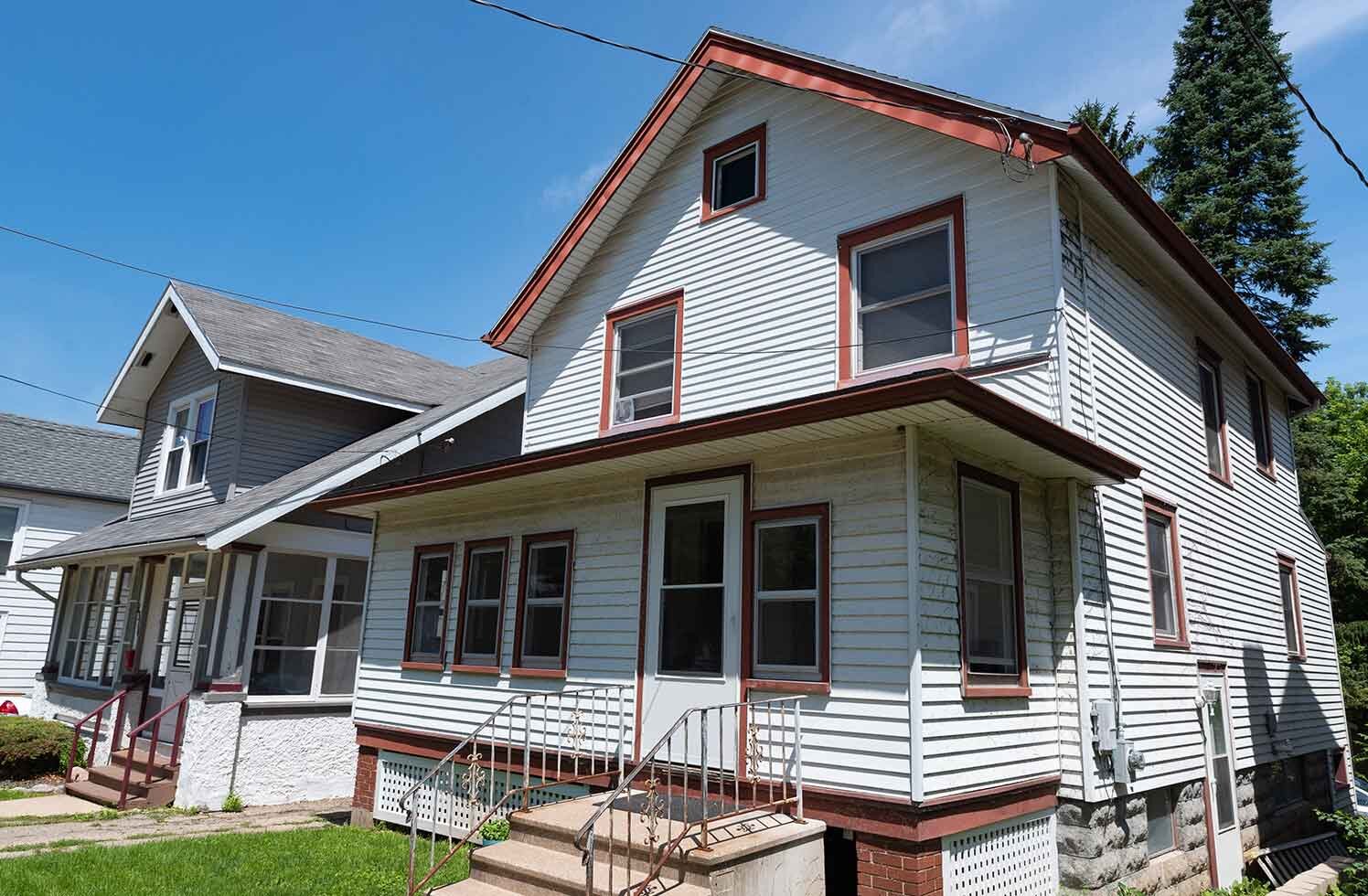Probate properties can be a good opportunity for real estate investors and those looking for a discount, but what does it take for a homeowner dealing with the probate process to sell? This article is an informative resource for anyone dealing with the probate process. It will explain what is probate and how you can navigate the often tricky process to sell a property in probate while still making a profit.
What is a Probate?
When someone passes away—whether with a will (testate) or without one (intestate)—their assets immediately become the responsibility of either the appointed executor or the Court. Probate is the legal process of handling those assets, and it comes in two forms: formal and informal.
Informal probate involves minimal court oversight and is typically used when there’s a valid will or no dispute over heirs. However, this article focuses on the more complex formal probate process. Formal probate becomes necessary when the estate carries significant debt, the will is contested, or the original will cannot be found. In these situations, the Court must step in to manage the process, ensure debts are paid, resolve disputes, and oversee the fair distribution of the estate’s assets.
Formal probate can be time-consuming and complicated, often requiring legal assistance and full court supervision to ensure everything is handled properly.
Can a House Be Sold While in Probate?
Yes, it absolutely can! A property in probate can be sold, but who has the authority to sell it depends on how the estate was left at the time of the person’s passing. There are three potential parties who may handle the sale: the executor named in the will, the administrator appointed by the Court (if there is no will but heirs are present), or the Court itself (in cases where there’s no will and no heirs seeking administration).
Once one of these parties is officially authorized to manage the estate and determine who inherits the property, the heir(s) or beneficiaries can begin the process of petitioning the Court for permission to sell the probate property. This process ensures transparency and legal compliance, allowing the property to be sold fairly and proceeds to be distributed appropriately among the rightful parties.
What Does it Take to Sell a House in Jacksonville While in Probate?
An executor’s main responsibility is to preserve the estate’s assets for distribution to any Heirs or beneficiaries, as outlined in the will. Sometimes a situation might occur where the estate owes a large amount of debt to creditors or the property has been neglected and back taxes are owed to the government. In this situation, the executor of the estate, the administrator, or the Court is allowed to sell the property to settle all debts, even if there are Heirs.
A good example of this is an elderly woman who passes away with an executor for her estate to manage her affairs. She has two Heirs. By the time she dies, she has racked up both hospital and credit card debt to the amount of $90,000. She leaves a home worth $150,000 but no cash assets and owes $80,000 to the hospital and $10,000 in credit card debt. Despite having passed, the estate still must find a way to pay off these debts. If the Heirs are unable to cover the debt themselves, the executor will need to sell the property to pay off the $90,000 of debt. Once the house is sold, the remaining $60,000 would be divided between the two Heirs.
A property in probate may also be sold if the person died with no will and there are no immediate Heirs. In this situation, the Courts can order the property to be sold and any profits distributed to the closest relatives.
Steps for Selling a House in Probate
If you own a property in FL that’s tied up in probate and you’re unsure how to move forward, don’t worry—there are clear steps you can take. While local and state laws vary, the probate sale process generally follows four key steps.
First, an executor or administrator must be officially assigned to manage the estate, either through the will or by court appointment. If you’ve been named executor—or you’re working with one—you’ll have the authority to determine whether to keep or sell the property.
Many heirs choose to sell, especially if the estate owes debts, the home is out of state, or it’s simply not practical to maintain. However, before listing the home, you’ll need to get it appraised to determine fair market value.
After the appraisal, you must petition the Court for approval to sell. Once approved, you can list the property yourself (FSBO), work with an experienced probate realtor, or sell directly to an investor for a quicker, as-is transaction.
Decide How to Sell the Property:

Valuation or Appraisal
The first step is determining the property’s current market value. This requires a professional valuation, either from a trusted real estate expert or a certified appraiser familiar with local probate laws. In many states, the Court mandates the property be sold for at least 90% of its appraised value.
That’s why it’s crucial to hire an appraiser who has experience specifically with probate properties. An inaccurate or inflated appraisal can complicate the sale process, making it harder to find buyers who meet the legal pricing threshold.
A knowledgeable appraiser will provide an accurate, fair valuation that reflects the home’s true worth—helping you move through the probate process smoothly and avoid unnecessary delays or legal setbacks during the sale.

Listing the House
After receiving the appraisal, you—along with the executor and/or your attorney—must file a petition with the court declaring your intent to sell the property and any other assets. This filing includes the appraised value and outlines your chosen method of sale, such as auction, listing on the open market, or selling directly to an investor.
Once the court approves the petition, you’re cleared to move forward and officially market the property. At this stage, you can decide whether to sell the house yourself (FSBO), work with an experienced real estate agent, or go with a direct investor sale for convenience.
Whichever route you choose, it’s essential to have someone on your team who understands the complexities of probate property sales. Their guidance can help you navigate legal requirements, avoid costly mistakes, and ensure a smoother, more efficient transaction from start to finish.

Offers
Whether offers come quickly or slowly, you’ll eventually need to choose the one that best aligns with your goals. Understanding what you want to achieve with the sale is essential.
Are you aiming for a fast sale to settle the estate’s debts quickly? Would you rather wait and try for a higher return? Or is the property in poor condition and better suited for an investor willing to handle major repairs? These factors play a big role in determining how and when to list a probate property.
Clarifying your priorities—speed, profit, or convenience—will help guide your decision when offers come in. By knowing exactly what you need from the sale, you’ll be better prepared to select the right offer and move forward confidently to the next step in the probate process.

Notice of Proposed Action
When a buyer submits an offer, they must be made aware that the sale can only be finalized after receiving court confirmation. While disclosure laws require this transparency, buyers unfamiliar with probate sales may be discouraged by the additional time involved.
This extended timeline is one reason probate properties—even when competitively priced—are sometimes passed over in favor of quicker transactions. However, if a buyer is informed and willing to wait, their offer can move forward.
The court will review the submitted bid to ensure it meets legal and financial standards. If everything is in order, the judge will issue an official order approving the sale. Having a patient, informed buyer makes all the difference in successfully completing a probate sale.

Bidding
For probate properties sold at auction, marketing can begin even before the Court issues formal approval to sell, helping attract more potential bidders. Typically, the Court oversees the bidding process, which follows strict legal procedures and guidelines. Because of its complexity, auction is often used as a last resort.
Once a winning bid is accepted, the executor must petition the Court for final authorization to complete the sale. However, if any heirs raise objections, the process can be delayed—or even canceled entirely—while the Court reviews the concerns and determines the appropriate next steps.
This added layer of oversight ensures fairness but also introduces potential complications. While auctions can lead to competitive offers, they require careful handling, clear communication, and the cooperation of all involved parties to move forward smoothly within the legal boundaries of the probate process.

Finalization of Sale
Ideally, the sale of your house, condo, rental property, or land goes smoothly. Even if there were a few bumps along the way, once the Court accepts an offer, you’re nearly at the finish line. The executor or attorney must file a final account and petition for distribution.
Once the Court reviews and approves these final documents, the title paperwork can be signed, officially transferring ownership to the buyer. This marks the successful conclusion of the probate property sale. Though the process may take time and require extra steps, reaching this point brings closure and allows the estate to move forward with distributing any remaining assets to the rightful heirs.
Who Buys Houses in Probate?
We do! Jax Beach Family Home Buyers is a direct house buying company that has built our reputation on buying houses for cash with less stress and less fees. Contact us today and get a competitive cash offer for that house or property that’s stuck in probate. We buy homes in any condition. We can help you with the convoluted process of selling a house in probate, making the process faster and as stress-free as possible.
Get An Offer Today, Sell In A Matter Of Days
Mistakes to Avoid When Selling a Probate Property

Moving Too Quickly
When someone passes away, their family may rush to sell the property to allow time for grieving. In some cases, pressing financial concerns—like mounting interest on debts—push the executor or administrator to price the home below market value for a quicker sale.
Similarly, if the house is in poor condition or requires expensive upgrades that beneficiaries aren’t willing to cover, they may choose to undervalue the property and sell it as-is. While this can speed up the process, it may result in a lower return for the estate.
A fast sale might offer immediate relief, but it’s important to weigh the long-term financial impact. Understanding the property’s true value and exploring all selling options can help families make informed decisions during an emotionally and financially challenging time.

Not Completing a Real Estate Disclosure
Depending on what state you live in, Real Estate Disclosure laws can be almost as tricky as the probate process! These laws are a list of issues (such as lead paint or asbestos) that must be disclosed to the buyers about a home before closing on the property.
Most states require sellers and their agents to disclose in writing “material defects” about the home. According to the National Association of Certified Home Inspectors, material defects are “…a specific issue with a system or component of a residential property that may have a significant, adverse impact on the value of the property, or that poses an unreasonable risk to people. The fact that a system or component is near, at or beyond the end of its normal useful life is not, in itself, a material defect.”
Experienced real estate agents are great at navigating these tricky waters, but what if you inherited a house that you never lived in? How would you know what to disclose? In some states, the executor, person selling the property, and/or real estate agent may be exempt from filling out local real estate disclosure forms due to the property being in probate. This is because that person does not and did not live in the property, so would have no way of knowing what to disclose.
If you are unsure of your state laws, someone who is experienced in probate real estate (whether it be a real estate agent or investor who has purchased probate properties in the past) will be able to help you navigate these legal waters. If looking into the latter option, be sure to sell your property directly to an experienced investor who doesn’t mind purchasing a property in probate and is willing to take the risk of purchasing a home from someone who is unable to give proper disclosure. You do have options!

Failing to Hire a Lawyer
We can not emphasize this enough – a knowledgeable real estate lawyer with experience in probate can help you navigate the process of probate much faster and easier than going at it alone! Not only will they know how to petition the Court so that you can finally put that property up for sale, but they’ll be able to guide you through the legal steps to sell that unwanted house or property with less hassle and tears. Even consulting will help ensure you aren’t missing the blind spots of the probate process.

Waiting Too Long to Start the Probate Process
Losing a loved one can leave us overwhelmed with grief, often causing everything else to be put on hold. However, during this time, the probate property continues to generate expenses. Property taxes accumulate, utility bills keep arriving, and mortgage payments remain due until the estate is fully settled.
Delaying action for too long can lead to significant financial consequences. These ongoing costs quickly add up, reducing the estate’s overall value and potentially leaving beneficiaries with far less than expected—or even in debt.
While taking time to grieve is essential, it’s equally important to address the responsibilities tied to the property. Acting early can help preserve the estate’s assets and prevent avoidable financial strain during an already challenging time.
Why Sell A House in Probate?
Selling a house in probate can be a smart and beneficial decision for several reasons. First and foremost, it helps simplify and expedite the process of settling the estate. When a loved one passes away, managing their property can be emotionally and financially overwhelming. Selling the home allows the executor to convert the property into liquid assets, which can then be used to pay off debts, taxes, legal fees, or other outstanding expenses tied to the estate. This ensures that heirs and beneficiaries don’t have to shoulder those financial burdens themselves.
Another key benefit is that selling the property provides a fair and straightforward way to divide the estate among multiple heirs. Instead of navigating the complexities of co-owning or managing the home, beneficiaries can receive their share in cash, avoiding potential disagreements.
Additionally, maintaining a vacant home can be costly and risky. Upkeep, property taxes, insurance, and the threat of vandalism or damage can add stress to an already difficult time. Selling the home during probate eliminates these concerns and allows everyone involved to move forward more quickly.
Ultimately, selling a house in probate can bring closure, reduce financial strain, and create a smoother path for settling the estate and distributing assets fairly.
Who Buys Houses in Probate?
We do! Jax Beach Family Home Buyers is a direct house buying company that has built our reputation on buying houses for cash with less stress and less fees. Contact us today and get a competitive cash offer for that house or property that’s stuck in probate. We buy homes in any condition. We can help you with the convoluted process of selling a house in probate, making the process faster and as stress-free as possible.

